“The Son of Man is to be delivered into the hands of men, and they will kill Him; and when He has been killed, He will rise three days later.” (Matthew 9:31)
This week, Christians around the world are celebrating the death, burial and resurrection of Jesus Christ. The Bible has much to say about these events. Four eyewitness accounts are given of these events in the gospels, and the New Testament epistles provide further elaboration. These events are the cornerstone of the Christian faith.
Yet, we’re told surprisingly little about what happened in Sheol (or Hades…the place of the dead) during the three days Jesus was in the grave.
The four gospel accounts are based on eyewitness testimony by the apostles and others. Since all the eyewitnesses were living, we have no direct account of what transpired in Sheol.
We are told Jesus preached to the spirits in prison, that He now holds the keys of death and of Hades, and that many of the dead were raised. Yet we know very little of what actually transpired in Sheol during those three days Jesus was in the grave.
Since I often write on the topic of redemption, it is not surprising I am sometimes asked what I think happened during those three days of silence from the tomb. It is a topic I have somewhat avoided, because the Bible simply does not provide an authoritative answer. Although I certainly have my own speculations, they’re exactly that…speculations.
But maybe it’s worth speculating…
Although the Bible is largely silent on what transpired during the Great Exodus from Sheol, it provides rich details of what transpired during the Great Exodus from Egypt. Since the Great Exodus from Egypt is clearly a prophetic precursor of Christ’s work in Sheol, let’s see what we can learn from it.
God’s covenant people were enslaved in Egypt, held in bondage by covenant to an abusive ruler. While enslaved in Egypt, they occupied a separate region called Goshen, where they experienced God’s protection even while enslaved.
In much the same way, God’s covenant people were enslaved in Sheol, held in bondage by covenant to Satan. While enslaved in Sheol, they occupied a separate region called Abraham’s Bosom (or Paradise), where they experienced God’s protection even while enslaved.
God told Moses:
Furthermore I have heard the groaning of the sons of Israel, because the Egyptians are holding them in bondage, and I have remembered My covenant. Say, therefore, to the sons of Israel, ‘I am the Lord, and I will bring you out from under the burdens of the Egyptians, and I will deliver you from their bondage. I will also redeem you with an outstretched arm and with great judgments. (Exodus 6:5-6)
What transpired afterward is the well-known Exodus story we are all familiar with…the story that is commemorated in the Jewish Passover feast…and which has inspired numerous movie depictions.
What transpired was that God showed up in Egypt…accompanied by ten plagues…each more devastating than the last. Each plague specifically targeted one of the false gods of Egypt, exposing them as frauds. God countered the false gods, not with empty arguments, but with power and judgment. The truth of God’s identity rolled over the lies of the false gods like a tidal wave of destruction.
The final plague, the death of the firstborn, targeted Pharaoh himself…the Egyptian sungod…cutting off the inheritance of the Egyptians much as Pharaoh had attempted to cut off the covenant inheritance of the Israelites by murdering their infant sons.
God redeemed Israel from their covenant with Pharaoh…bringing about their just divorce from Egypt and dissolving all legal ties and all covenant obligations to Pharaoh.
Most redemptions require a payment on behalf of the person being redeemed from slavery. However, in Israel’s redemption from Egypt, the only payment made to Egypt was the ten plagues…while Israel was paid Egyptian silver and gold. These were the payments deemed by God as just redemption from Egypt.
In the end, Pharaoh was so desperate for God to leave Egypt that he ordered the Israelites to leave, thereby dissolving their covenant.
Then the Lord said to Moses, “Now you shall see what I will do to Pharaoh; for under compulsion he will let them go, and under compulsion he will drive them out of his land.” (Exodus 6:1)
I speculate that Christ’s redemption of His people from Sheol was similar to the redemption from Egypt.
Sheol is described as a place of darkness, despair, and torment. Into that dark kingdom of death strode the Lord of Light and Life. The lies of Satan were steam-rolled by the power of the living Christ. The pillars of deception and despair were vaporized by the truth and hope of Christ. Satan’s stronghold began to crumble and those enslaved found new hope.
And I speculate that Satan was so desperate for Christ to leave that he begged Jesus to take all His chosen ones out with him, thereby dissolving his covenant claim.
“…for under compulsion he will let them go…”
Here is what Isaiah prophesied about the coming Messiah’s dual work of judgment and redemption:
Because you have said, “We have made a covenant with death, and with Sheol we have made a pact. The overwhelming scourge will not reach us when it passes by, for we have made falsehood our refuge and we have concealed ourselves with deception.”
Therefore thus says the Lord God,
“Behold, I am laying in Zion a stone, a tested stone, a costly cornerstone for the foundation, firmly placed. He who believes in it will not be disturbed.
“I will make justice the measuring line and righteousness the level. Then hail will sweep away the refuge of lies and the waters will overflow the secret place.
“Your covenant with death will be canceled, and your pact with Sheol will not stand. When the overwhelming scourge passes through, then you become its trampling place.
“As often as it passes through, it will seize you. For morning after morning it will pass through, anytime during the day or night, and it will be sheer terror to understand what it means. (Isaiah 28:15-19)
Glory! What a Savior! Our Redeemer lives!
He joins us in our place of bondage. He protects us as He judges our oppressor. He redeems and delivers us into liberty in Him. He resurrects us to new life.
Your thoughts?

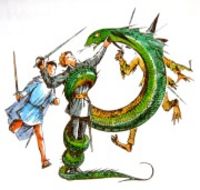 In my latest read through the series, the relationship that most stood out to me as a study of classic abuse was the story of Prince Rilian and the Queen of Underland (aka The Lady of the Green Kirtle, the Green Witch, or the Green Lady) who turned out to be the same green serpent who had killed his mother. Of course we have the obvious maliciousness (obvious to the reader, not obvious to Rilian) of having killed his mother, of holding Rilian captive, and of scheming to use Rilian as a tool to destroy his own home and kill his own family and friends. But let’s take a closer look at some of the interpersonal tactics she used to accomplish these goals.
In my latest read through the series, the relationship that most stood out to me as a study of classic abuse was the story of Prince Rilian and the Queen of Underland (aka The Lady of the Green Kirtle, the Green Witch, or the Green Lady) who turned out to be the same green serpent who had killed his mother. Of course we have the obvious maliciousness (obvious to the reader, not obvious to Rilian) of having killed his mother, of holding Rilian captive, and of scheming to use Rilian as a tool to destroy his own home and kill his own family and friends. But let’s take a closer look at some of the interpersonal tactics she used to accomplish these goals.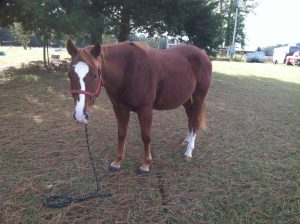 In working with my current ‘project’ horse, one of my primary goals is helping him overcome fear.
In working with my current ‘project’ horse, one of my primary goals is helping him overcome fear.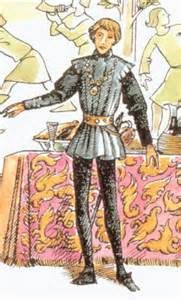 Prince Rilian of Narnia was a man with two destinies.
Prince Rilian of Narnia was a man with two destinies.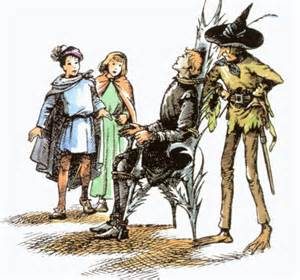 What about The Silver Chair from whence the book derives its name?
What about The Silver Chair from whence the book derives its name?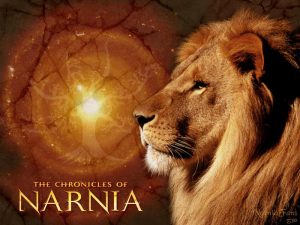 In rereading C.S. Lewis’ The Chronicles of Narnia, I’ve been fascinated by Lewis’ portrayal of how Aslan’s will is worked out in Narnia.
In rereading C.S. Lewis’ The Chronicles of Narnia, I’ve been fascinated by Lewis’ portrayal of how Aslan’s will is worked out in Narnia.

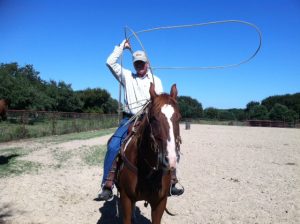
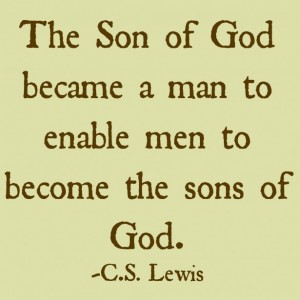 Does God change?
Does God change?